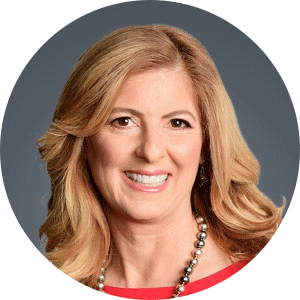
It’s been said that “Habit will sustain you whether you’re inspired or not.” (American author Octavia Butler) When it comes to instilling good financial habits for children, a few things are clear – start early, talk often and set good examples, according to a group of PNC financial experts.
Each brought to the conversation their experience as professionals and parents, offering insights for talking to children about earning, spending, saving, sharing, investing and managing their own money and the appropriate ways to approach specific financial conversations at every age.
Toddler Talks: Grasping the Concept of Money
The age that most children begin to grasp money concepts, according to behavioral researchers at Cambridge University, is 3.[1]

Jeanine Fahnestock, deputy executive director of PNC Grow Up Great®,a bilingual school readiness initiative that prepares children from birth to age five for success in school, knows the lasting impact that early conversations around money can have on children. “We know when children are successful in school, they are more likely to be successful in life,” she says.
With Sesame Workshop, the nonprofit educational organization behind Sesame Street, PNC developed For Me, For You, For Later: First Steps to Sharing, Spending, and Saving.™ This program provides adults with strategies and resources to help very young children learn basic financial concepts, such as making choices, and the value of people, things and money.
“Using everyday moments as learning opportunities is a core philosophy of the program,” said Fahnestock, mother of 11- and 7-year-old children. “Getting kids involved in family decision-making can be as simple as explaining to them why you selected one item over another in the grocery store. Was it on sale? A healthier choice?”
VIEW THE WEBCAST REPLAY: How to Talk to Kids About Money.
This webcast is an excerpt from PNC's Women in Business Week.
School-Age: Establishing a Financial Foundation
Once the early building blocks of understanding money are established, the foundation starts to take shape at age 7, according to the Cambridge study.[2]

“By this age children are becoming exposed to not just what they're learning in school, but also what their peers have access to,” said Emily Bouchard, who leads PNC’s Institute for Family Success. “They’re very much digital natives at this point and understand this whole world that is available to them online.”
Natalie Talpas, head of PNC Digital and Emerging Payments, noted the number of free electronic tools available to help children manage money and learn about investing. However, she cautions parents to monitor what their kids are learning online and how they are engaging with apps. “Kids with devices are just as susceptible as adults are to phishing and smishing scams and other fraud efforts,” said Talpas, mother of two boys, ages 8 and 10.

Parents who talk openly about how they spend, save and share, themselves, can also be helpful to kids, said Bouchard, “bonus mother” of two and step-grandmother to three.
“Being open about financial decisions and spending helps children be aware of the cost of the video games and devices they love, as well as the electricity and Wi-Fi used to power them, and gives them the understanding that the things they love aren’t free. This can open up a great opportunity for children to begin to save for the goals they have.”
Another effective learning tool, especially for families with wealth, is allowing children to look up the value of their home and how it compares to others in the neighborhood.
“Researching together details about your family’s assets online provides the opportunity to teach them how to navigate and manage questions that they might encounter from friends who also have access to this information online. This gives parents the chance to manage the narrative of the family’s values and approach to money, wealth, and spending,” said Bouchard. “Talking about family history and how it led to where the family’s finances are now can help provide an empowering perspective.”
Allowances were another topic in the webcast. Bouchard suggests untethering an allowance to chores or behavior and adjusting the amount according to age – $10 at age 10, for example. She also noted the importance of teaching kids how to manage a budget.
“If you're going to give them an allowance, and they run out of money, don't just give them extra,” Bouchard said.
Teens and Beyond: Financing the Future
More than 50% of teens, ages 13-18, worry about their financial futures, according to a 2023 study conducted by Junior Achievement.[3] Worries about the rising costs of college, accruing student loan debt, high-interest rates and the uncertain job-market mount the list of concerns.

Continuing to involve your children in money talks and plans around college can help alleviate these anxieties, said Melodie “MJ” Roach, a financial advisor with PNC Investments. When her kids were young, she and her husband encouraged them to research and apply for scholarships as soon as they began thinking about college.
“You will find hundreds of websites for scholarships,” said the mother of eight and grandmother of three, “and I would have my kids apply for them every week.”
She also recommends exploring the features and benefits of 529 college savings plans and Roth IRAs with your teens. “For my children who decided to work before attending college, they were able to put away money in a Roth IRA to use for college as well as their first car or home,” Roach said.
Roach also used everyday moments to teach her kids about investing. “When my daughter was five, she loved a pink beverage at a popular coffee shop, so I began to talk to her about whether she liked the product enough to buy stock in the company.”

Amanda Agati, chief investment officer for PNC’s Asset Management Group, uses a similar approach with her two daughters, ages 11 and 7. Cash or checks they receive as gifts for holidays, birthdays or other special occasions go into their piggy banks, a PNC interest-bearing savings account or an investment account.
“Once a year, we take stock of what they've accumulated and make some decisions about what to do with it,” Agati said. “But we don't spend it.”
Both the money and education are meant to help their financial futures.
“Parents need to be more empowered than ever with how to intentionally educate and build their children’s competencies and confidence when it comes to their financial behaviors and lives,” Bouchard said,” and there are many resources to assist parents with that.”
WATCH MORE: View more of the webcast replays from Women in Business Week 2023.




